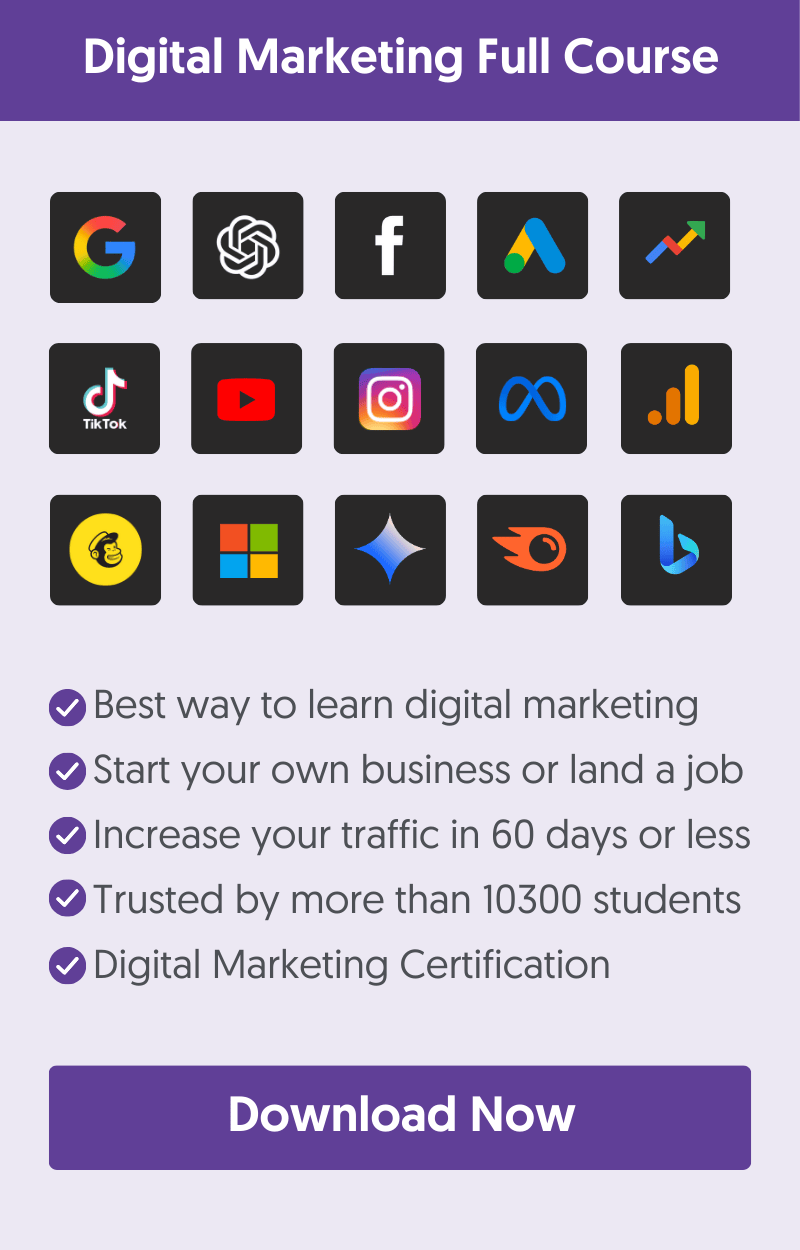Affiliate marketing is one of the oldest forms of marketing. It is based on a very simple concept: Affiliates agree with merchants to promote and sell their products in exchange for a commission.
It is a legitimate practice and a real business model that many companies (online and offline) use to make money.
What makes people question the legitimacy of affiliate marketing is affiliate marketing scams.
These programs circulating the Internet promise richness and unrealistic results, tricking people into buying a product or service that will never work and causing them to lose their money.
If you’re interested in affiliate marketing, it’s crucial to understand the difference between legitimate opportunities and scams and how affiliate marketing actually works.
Can You Really Make Money With Affiliate Marketing? Is It Worth It?
Yes, you can make money with affiliate marketing. Actually, it's one of the most popular ways to make money online.
The blog you're reading now is a good example of a business that makes money selling its own products and services and through affiliate marketing.
As you can see in the screenshot below, we have made more than 200K in affiliate earnings by promoting useful products and services to our audience over the last couple of years.
It's not easy to reach these numbers; it requires a lot of work, but it's certainly worth it.
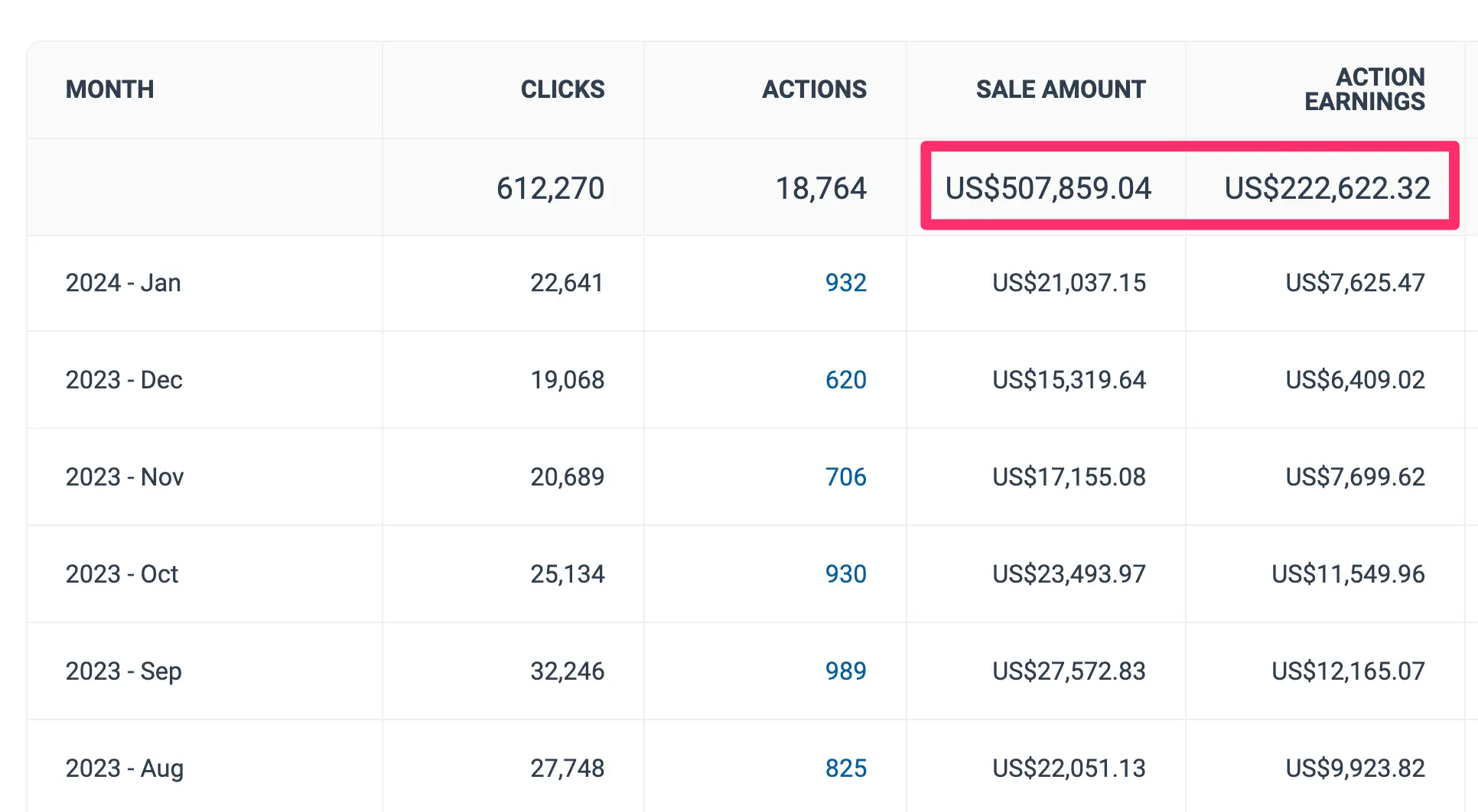
Besides our example, many companies in different industries make millions in affiliate marketing commissions. To get an idea, here are some case studies:
- Pat Flynn, a successful affiliate marketer, earned more than 1 million by promoting 5 products.
- Adam Enfroy makes a seven-figure affiliate income from his blog.
- WireCutter made more than 150 million in affiliate revenue before being acquired by the New York Times.
The list is endless. Any company that you see ranking in the top positions of Google for high-intent keywords is probably making good money through commissions.
Affiliate Marketing Scams And How To Avoid Them
So, if affiliate marketing is worth it and legitimate, why does it have a bad reputation? The answer is affiliate marketing scams.
These programs aim to get people to spend money in the hope that they will make more, but in reality, they rarely deliver on their promises. Scammers promote their programs with flashy claims like “make thousands overnight” or “no work required " to get people to sign up.
However, legitimate affiliate marketing requires consistent hard work, research, and strategy to get good results.
The good news is that avoiding these scams is easy. Look for these characteristics:
Asking potential affiliates to pay to join a program
Avoid any affiliate program that requires you to pay upfront to participate. Legitimate programs make money from product sales, not from charging affiliates.
When asked to pay a fee, it’s often a sign of a scam. These programs promise quick returns once you’ve paid, but they rarely deliver on their promises.
For example, some schemes will charge you for “exclusive” training or access to special tools, but in reality, you get outdated or generic advice.
Fake gurus teaching how to make thousands with affiliate marketing
Beware of self-proclaimed “gurus” offering expensive courses or coaching on how to make a fortune through affiliate marketing.
They often present themselves as living in luxury homes or driving expensive cars, claiming it’s all thanks to their secret system. However, in most cases, these scammers make their money by selling "hope" to people and not through any magical affiliate marketing system.
Think about it this way. If someone has a way to make thousands, why would they share this with other people?
Pyramid schemes
Pyramid schemes are often presented as affiliate programs, but their main focus is for the founders to get as many people to sign up as possible to make more money.
These schemes collapse quickly when there are no more people to recruit, and everyone who signs up loses their money.
You can easily tell that a program is a pyramid scheme if it requires recruiting others rather than selling products.
One well-known example was the “Vemma” scheme, which recruited young people to sell health drinks but made the bulk of its money through sign-up fees.
Low-quality scam products (mostly digital)
Scammers often promote low-quality digital products—like e-books, software, or courses—that are poorly made or useless. These products are usually overhyped, and once people buy them, they realize the content is either basic or irrelevant.

Always review products thoroughly before joining. Look at the company's website and social media pages. Use tools like Semrush or Ahrefs to check their traffic and rankings history. Check user feedback for negative reviews. Look in forums like Reddit for real user feedback.
Don't blindly believe what you see on TikTok, Instagram, or Facebook. Do your research first and only get involved in products that solve people's problems or add value to their businesses and lives.
Programs making unrealistic promises and faking results
There is a saying I learned 20 years ago when I started with Internet Marketing. If something (a method, technique, program, scheme) is too good to be true, it probably is.
If a program promises you’ll make thousands in a matter of days, it’s a big red flag.
If a new method promises you'll rank high on Google in a few days, it's definitely a scam.
Scammers often use fake screenshots of massive earnings or paid testimonials to convince people their system works.
Always ask yourself: if it were that easy, why isn’t everyone doing it? Instead of chasing quick wins, focus on programs with realistic expectations and provide tools to help you grow your business steadily over time.
How To Find Good And Legit Affiliate Programs?
The good news is that great programs are available to promote related products (physical and digital) to your audience and earn commissions.
Here is how to find them and what to look for:
Start by looking for established brands or companies in your niche.
Big online retailers like Amazon have transparent and trusted affiliate programs. Amazon Associates, for example, is one of the most popular affiliate programs because it’s easy to join and covers a wide range of products.
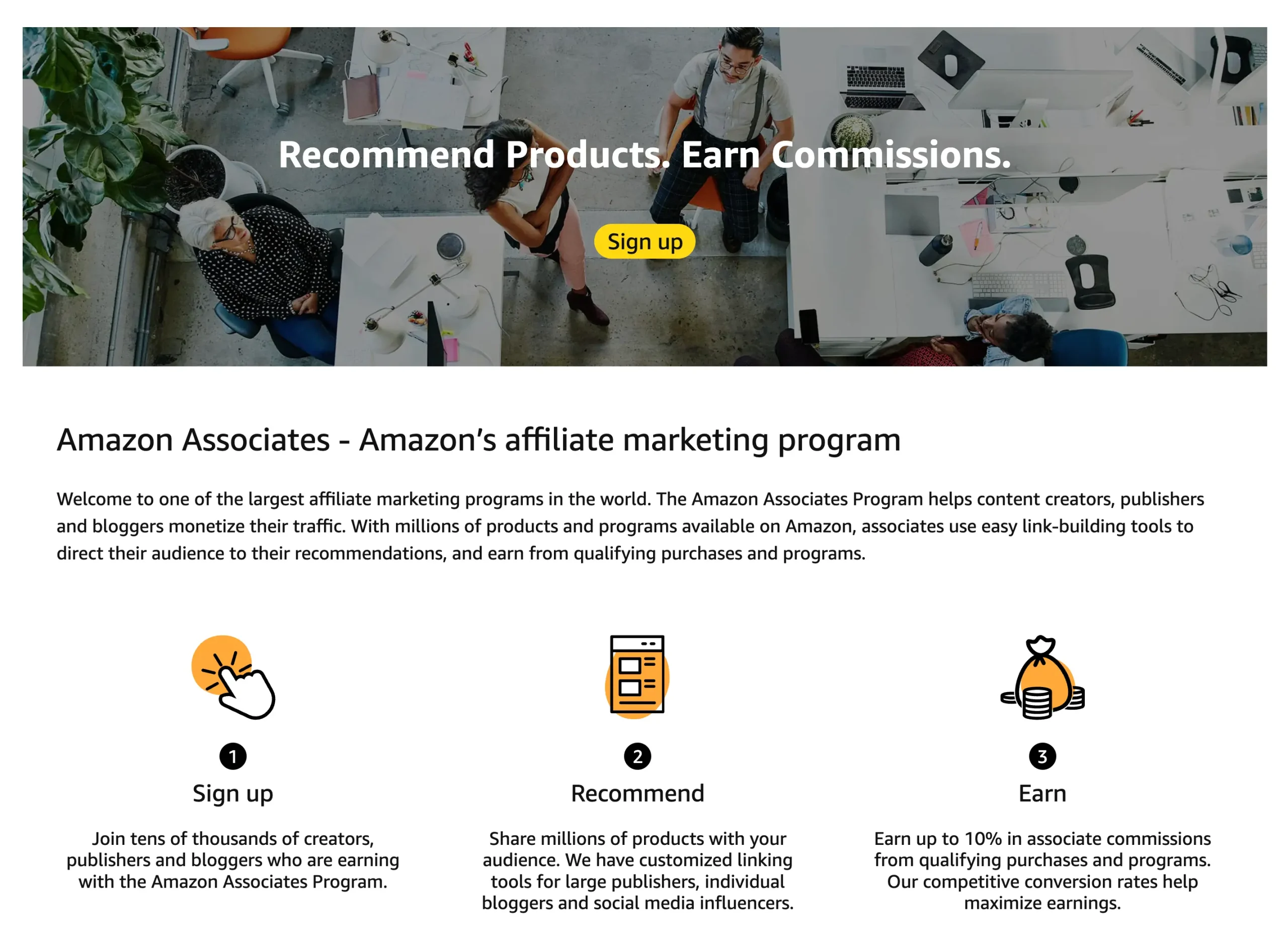
As an affiliate, you can promote virtually anything sold on Amazon, from electronics to books, making it ideal for most niches. While Amazon’s commission rates are relatively low, the number of products and the trust consumers already have in the brand make it a good starting program for beginners.
Check affiliate networks like ShareASale, Impact, or Rakuten.
These platforms vet their advertisers, ensuring that you’re promoting legitimate products. You can browse categories relevant to your niche and see which programs offer competitive commissions, reliable tracking, and timely payouts.
Read the program terms and conditions.
Always look for programs that provide clear terms and conditions. A good program will outline commission rates, cookie durations, and payment thresholds upfront. Be careful of any program that does not provide these details or doesn’t offer support or resources to help you understand how it works.
Check a program's reputation in forums and Google.
Before enrolling in a program, read reviews in forums or stories from trusted affiliates. Successful affiliates often share their experiences with specific programs, which can help you avoid bad deals and scams.
We created a list of the best affiliate programs (screenshot below) to help you get started promoting high-quality products with high commissions.
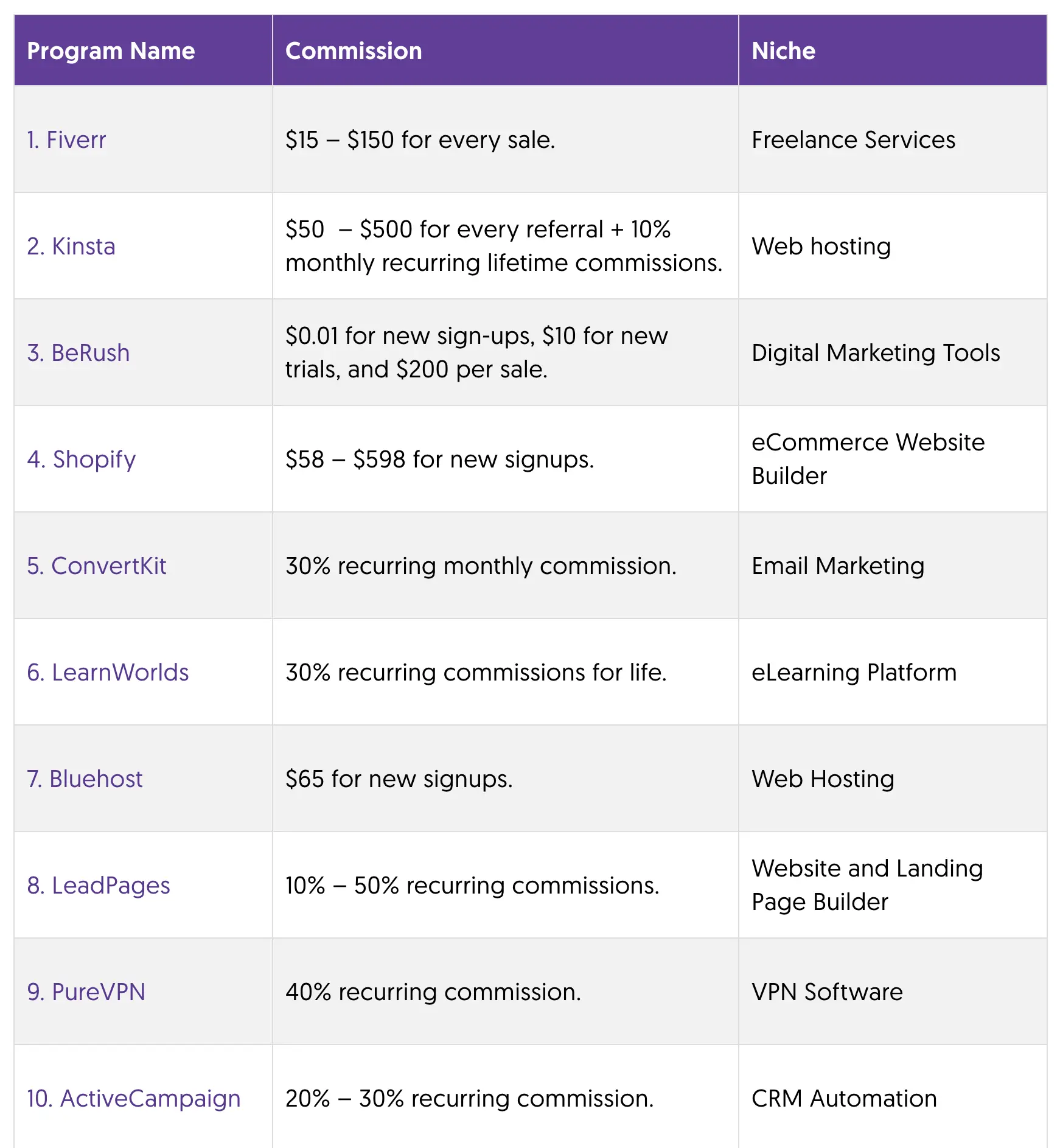
How To Get Started With Affiliate Marketing The Right Way
Now that you're convinced that affiliate marketing is real let's see the best way to get started without wasting your money or time.
Follow these steps:
1. Learn what affiliate marketing is and how it works
Obviously, the first step is to learn everything you can about affiliate marketing and how it works.
You need to know how affiliate agreements are made, how sales are tracked, how commissions are calculated when you get paid, and many other details that are part of the process.
A good place to start is an online course that will teach you the basic and advanced concepts, as well as online guides (see our resource section below).
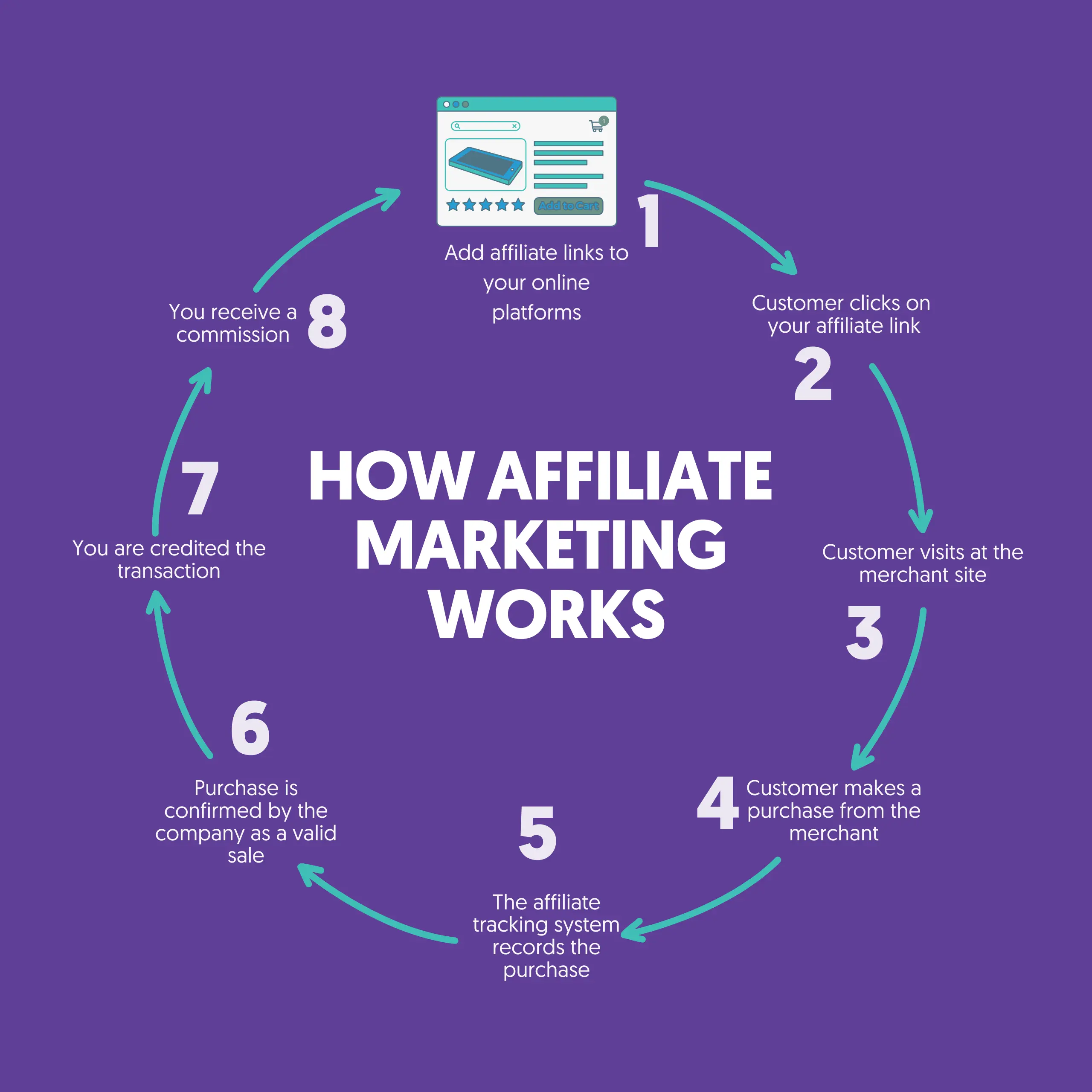
2. Choose your niche
The next step is to choose your niche. In other words, decide on the specific topic or industry you’ll focus on.
A good niche should be something you’re passionate about or have knowledge of, but it also needs to be profitable. Look for a niche with a decent audience willing to spend money.
Do some keyword research to see if there’s enough demand, and check out your competition. If the niche is too crowded with big players (known brands), it may be hard to impossible to compete.
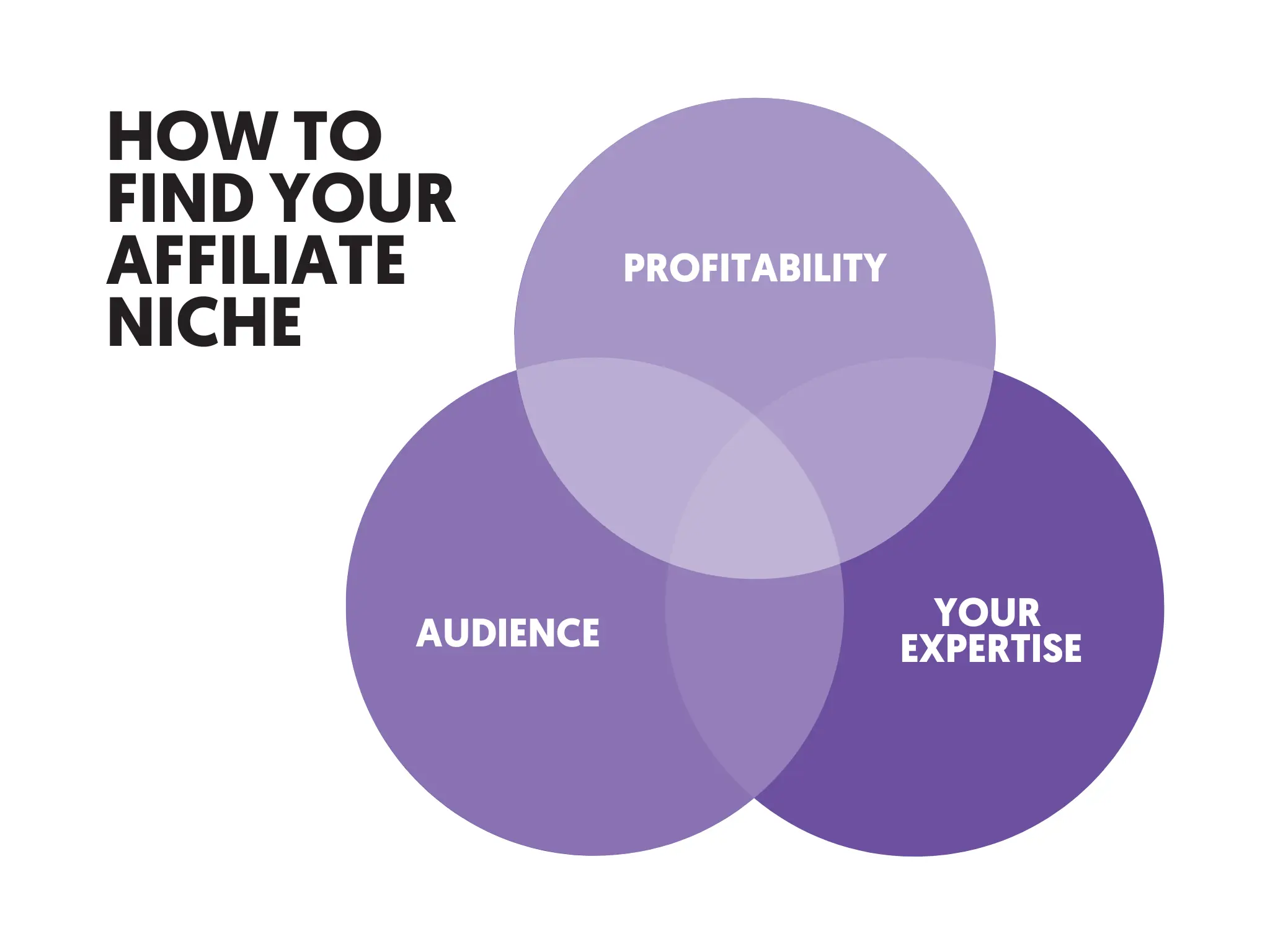
Aim for a balance between something that interests you and has the potential for affiliate income but isn’t overly saturated.
3. Find products to promote
Once you’ve chosen your niche, the next step is to find products or services to promote. The key here is to focus on products that align with your audience’s needs and interests but are also easy to sell and profitable.
Always promote high-quality products with a good reputation (positive user reviews) to protect your credibility. Otherwise, if you lose users' trust, your chances of succeeding with affiliate marketing are minimal.
Look for affiliate programs with high commissions (preferably recurring), reliable payment systems, and long cookie durations. Additionally, ensure that the affiliate program provides tracking tools so you can monitor your performance.
A good starting point is to consider promoting products you like and use personally. This makes your recommendations more genuine, and your audience will trust your opinion more.
4. Build your audience
Building an audience is one of the most critical steps in affiliate marketing. There are several ways to do this, and the best approach depends on your niche and where your target audience hangs out.
One of the most popular methods is creating and monetizing a blog where you can promote related products by posting helpful, relevant content. With this approach, your goal is to use SEO to get your content on the first page of Google and gain targeted traffic that will eventually convert.
Social media is another powerful tool. Platforms like Instagram, YouTube, and TikTok allow you to create content, build relationships, and promote affiliate products. The key here is consistency and engagement—create valuable content that connects with your audience, answers their questions, or entertains them. Don’t focus solely on selling; people trust those who provide value first, and the sales will follow.
Regardless of the platform, the goal is establishing yourself as an expert or authority in your niche. When people see you as a trusted source of information, they’re more likely to follow your recommendations and make purchases.
Avoid being overly pushy with promotions. Instead, focus on solving your audience’s problems and genuinely helping them. This approach builds trust and leads to long-term affiliate success.
For more details and examples, check our guide on how to get started with affiliate marketing.
Learn More About Affiliate Marketing
To learn more about the ins and outs of affiliate marketing, follow these resources:
- Affiliate Marketing Course For Beginners - A comprehensive course covering everything you need to know about affiliate marketing from start to finish.
- Best Affiliate Marketing Courses - A list of free and paid courses from successful affiliate marketers to teach you affiliate marketing.
- How To Become An Affiliate Marketer - A roadmap on how to start a career as an affiliate marketer.
